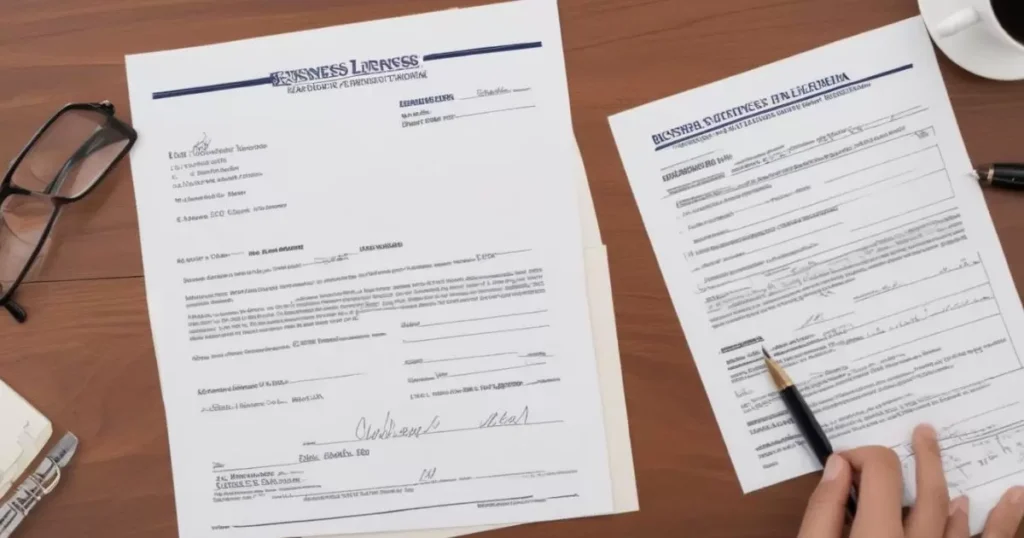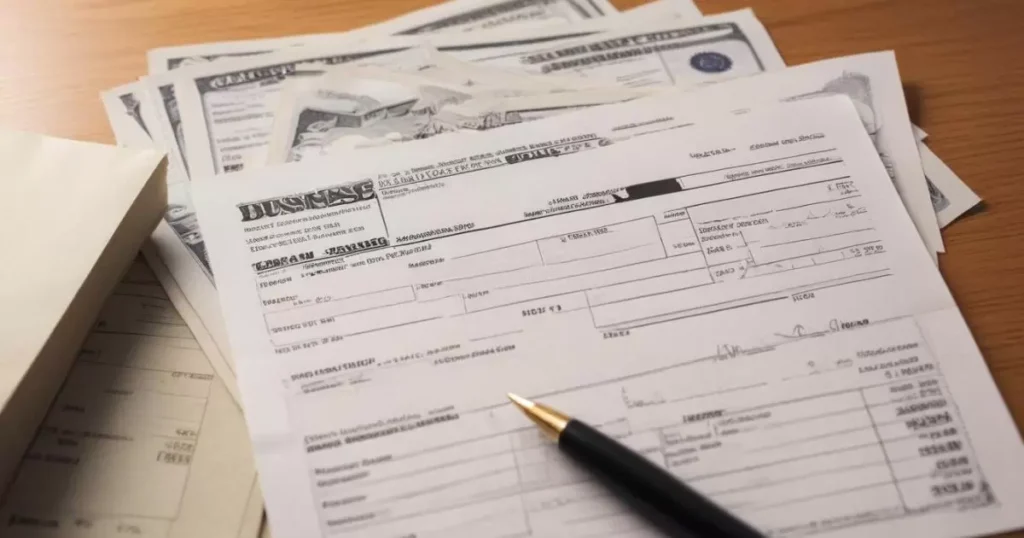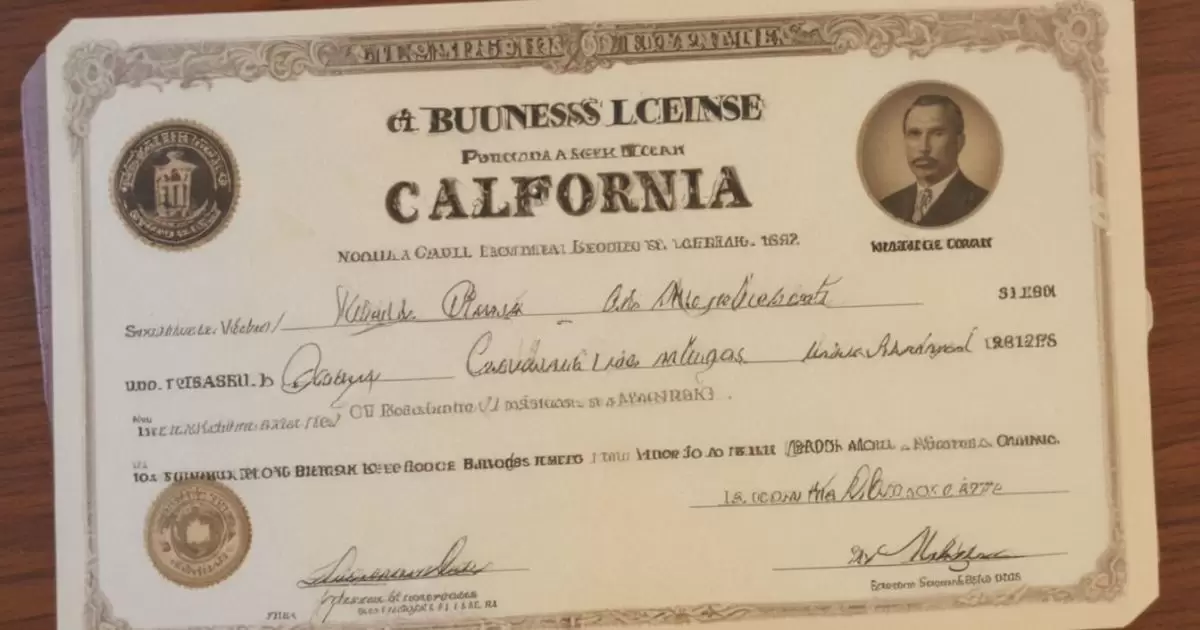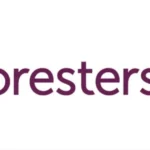Introduction
“cost of obtaining a business license in California varies depending on the city and type of business, typically ranging from $50 to a few hundred dollars.
Starting a business in California involves various steps, and one of the critical requirements is obtaining a business license.
Understanding the cost and requirements associated with a business license is essential for any entrepreneur looking to establish a business in the Golden State.
In this article, we’ll explore the types of business licenses available, the factors affecting costs, and the process of obtaining and renewing these licenses. We’ll also provide detailed information on city and county-specific fees, financial assistance options, and tips for home-based businesses.
By the end of this guide, you will have a clear understanding of what it takes to get your business licensed in California and how much you can expect to spend.
Introduction to Business Licenses in California

In California, a business license is a legal requirement for operating a business. It ensures that your business complies with local regulations and is recognized as a legitimate entity within the jurisdiction where it operates.
The purpose of a business license is to protect public safety, enforce zoning laws, and collect revenue for local governments. Depending on the type and location of your business, you may need various types of licenses and permits.
The cost of obtaining these licenses can vary widely, making it crucial to understand the different factors that influence these expenses.
Types of Business Licenses in California
California offers several types of business licenses and permits, each serving a different purpose. Here are the main types:
- General Business License: Required for most businesses operating within a city or county.
- Professional Licenses: Needed for professions such as real estate agents, medical practitioners, and accountants.
- Special Permits: Required for specific activities like selling alcohol, operating a food truck, or running a daycare.
- Home Occupation Permits: For businesses operating out of a home.
Types of Business Licenses in California: A Comparative TableCost Factors for Business Licenses
The cost of a business license in California can vary due to several factors:
- Type of Business: Different businesses require different licenses, with varying costs.
- Location: Fees can differ based on whether your business is in a large city or a small town.
- Size of Business: Larger businesses may face higher fees.
- Business Structure: Sole proprietors might pay less than corporations or partnerships.
- Additional Permits: Specific industries may require additional permits or licenses, increasing the total cost.
City-Specific License Fees
Each city in California sets its own fees for business licenses. For example:
- Los Angeles: Approximately $100 – $800, depending on business size and type.
- San Francisco: Generally ranges from $100 – $500.
- San Diego: Fees typically vary between $50 – $200.
These fees are determined by local ordinances and can change based on city budgets and regulations.
County-Specific License Fees
Counties also have their own licensing fees, which can vary significantly:
- Orange County: Fees generally range from $50 – $500.
- Santa Clara County: Typically between $100 – $300.
- Riverside County: Fees can range from $75 – $400.
County fees often depend on factors like business type, location, and the level of service required.
State-Level Fees and Requirements
At the state level, businesses might need to pay for additional licenses or permits, such as:
- California State Tax ID: Necessary for tax purposes, with minimal application fees.
- Seller’s Permit: Required if selling goods, usually with a nominal fee.
- Professional Licenses: Various fees depending on the profession and level of certification.
Application Fees vs. Renewal Fees
- Application Fees: These are one-time fees paid when initially applying for a business license. They cover the cost of processing the application and issuing the license.
- Renewal Fees: Paid annually or biennially to keep the license active. Renewal fees are often lower than the initial application fees but can vary based on the type of license and the business’s operational changes.
Additional Costs Beyond License Fees
Apart from the direct costs of obtaining a license, there may be additional expenses, including:
- Legal Fees: For setting up business structures or compliance advice.
- Insurance: Required for various business types and can add to the overall cost.
- Bonding: Some businesses need to post a bond, which can be costly.
Financial Assistance and Grants
Several programs and grants can help with the costs associated with business licenses:
- Small Business Administration (SBA) Loans: Can provide funding for various business expenses.
- Local Grants and Incentives: Offered by cities or counties to encourage business growth.
- Non-Profit Organizations: May offer grants or financial advice for startups.
How to Apply for a Business License
The process for applying for a business license typically involves:
- Researching Requirements: Understand the specific licenses needed for your business type and location.
- Completing Applications: Fill out the required forms for city, county, and state licenses.
- Paying Fees: Submit application and license fees as required.
- Providing Documentation: Include necessary documents such as proof of identity, business plans, and operational details.
Cost of Business Licenses for Home-Based Businesses
Home-based businesses often face lower licensing costs compared to traditional brick-and-mortar establishments.
Typical costs range from $50 – $150, depending on the city and county regulations. However, specific permits might be needed to comply with local zoning laws.
Resources for Estimating Business License Costs

To estimate business license costs, consider:
- Local Government Websites: Check city and county websites for fee schedules and requirements.
- Business Licensing Services: Online platforms that offer cost estimations and application assistance.
- Local Chamber of Commerce: Can provide guidance on business licensing costs and processes.
How Do You Make Money from a Non-Profit Business?
Importance of a Business License in California
A business license is crucial for legal operation in California. It helps ensure compliance with local regulations, protects consumers, and contributes to the local economy. Operating without a license can result in fines, legal action, and business closure. Obtaining the proper licenses demonstrates professionalism and commitment to operating within the law.
Additional Tips
- Stay Updated: Licensing requirements and fees can change, so regularly check for updates.
- Seek Professional Help: Consider consulting with a business advisor or attorney for complex licensing needs.
- Plan Ahead: Factor licensing costs into your business budget to avoid surprises.
Pros and Cons
| Pros | Cons |
| Legal Compliance: Ensures that your business operates within the law. | Costs: Can be a significant expense, especially for startups. |
| Professionalism: Builds credibility and trust with customers. | Bureaucracy: The application process can be time-consuming and complex. |
| Access to Resources: May provide access to business resources and local networks. | Ongoing Fees: Requires regular renewals and potential additional costs. |
| Consumer Protection: Helps in protecting consumers by ensuring businesses meet regulatory standards. | Additional Costs: May include legal fees, insurance, and bonding. |
| Tax Benefits: Proper licensing may offer eligibility for certain tax deductions and benefits. | Zoning Restrictions: Some business licenses require compliance with local zoning laws, which may limit operations. |
FAQs
1. How much does a general business license cost in California?
The cost for a general business license in California typically ranges from $50 to $200, depending on the city or county where the business is located.
2. Are there any financial assistance options for covering business license fees?
Yes, various options include SBA loans, local grants, and non-profit organization grants. These can help offset the costs of obtaining and maintaining a business license.
3. Do home-based businesses need a different type of license than traditional businesses?
Home-based businesses usually require a home occupation permit in addition to a general business license. The costs are generally lower compared to traditional business licenses.
4. What additional costs should I expect beyond the business license fee?
Additional costs may include legal fees, insurance, and bonding. These can add up depending on the nature of your business and local requirements.
5. How often do I need to renew my business license?
Renewal frequency varies by city or county but is typically annually or biennially. Renewal fees are generally lower than the initial application fees.
By understanding these aspects, you can ensure that your business is properly licensed and positioned for success in California.
| License Type | Description | Typical Cost Range |
| General Business License | A broad license for operating a business within a jurisdiction. | $50 – $200 |
| Professional Licenses | Specific to professions requiring state certification or registration. | $100 – $500 |
| Special Permits | Required for regulated activities (e.g., food service, alcohol sales). | $100 – $1,000 |
| Home Occupation Permit | Allows business activities from a residential property. | $50 – $150 |
Conclusion
Navigating the business licensing landscape in California requires understanding various factors affecting costs and requirements. From city-specific fees to state-level permits, the costs can vary widely.
By researching thoroughly, planning your budget, and utilizing available resources, you can effectively manage the costs of obtaining and maintaining a business license
A business license not only ensures legal compliance but also positions your business for success in California’s competitive market.

Hi, I’m Amaliyah-Richard! I’m a dedicated author at Skyvoxes. I hold a Bachelor’s degree in Business, and I love writing about all things business. My aim is to make complex business topics easy to understand and accessible for everyone. Whether you’re a seasoned professional or just starting out, I hope my articles provide you with valuable insights and practical advice.










